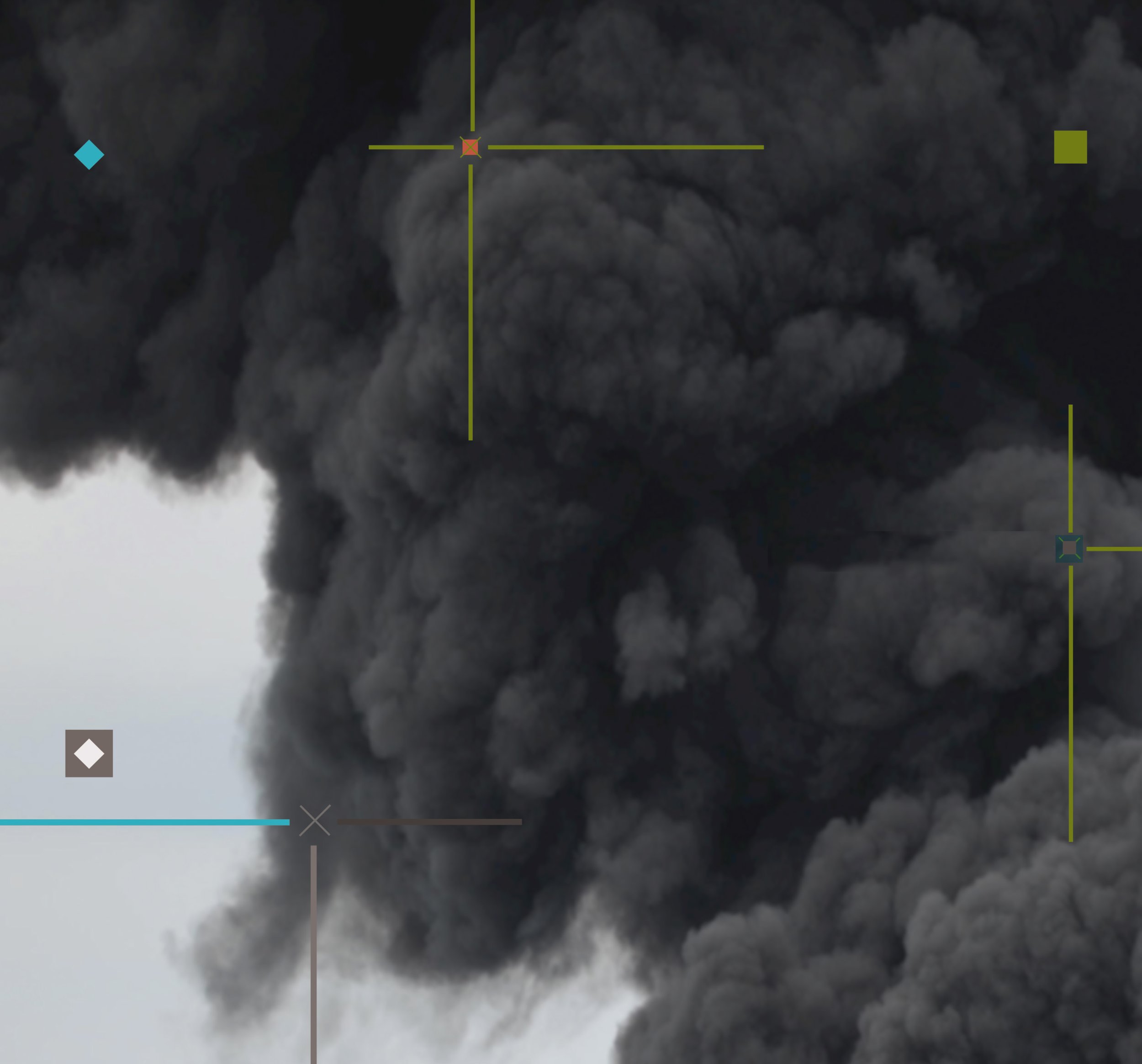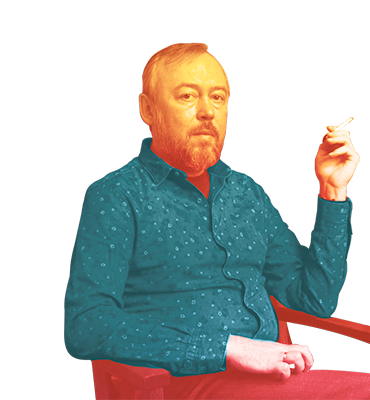
ALEKSANDR KABANOV
Aleksandr Kabanov was born in Kherson in 1968. He studied journalism at the Kyiv State University. An author of eleven books of poetry and numerous publications in major Russian literary journals, Kabanov is said to be one of the leading Russian-language poets of his generation. He has been awarded a number of prestigious literary prizes, among them the Russian Prize, International Voloshin Prize, Antologia Prize, and the Novy Mir Literary Magazine Award for the best poetry publication of the year. His poems have been translated into German, English, Dutch, Georgian, Ukrainian, Polish, Kazakh, and other languages. Since 2005, Kabanov has been the chief editor of the journal of contemporary culture SHO (“WHAT”) and coordinator of the International poetry festival Kyiv Laurels.

From the Translator
Alex Cigale
Though I am a relative newcomer at applying my hand to translating Aleksandr Kabanov's wonderfully supple, spirited, and sharp-witted verse, I have been an admirer, from the sidelines, for some decade now. What I find most remarkable about him is that, whether he fails or succeeds in achieving a depth of resonance, his acrobatic attempts are never, never boring. A fitting parallel for this may be taken from the final couplet of Vladislav Khodasevich's 1912 sonnet-in-couplets, an analogy for the poet's balancing verbal act, “Acrobat”.
Poet, pass by with an indifferent face:
Do you not live by the same craft and trade?
While bearing the stamp of Khodasevich's quite similar self-deprecation, and evidencing a comparable degree of formal elegance, his touch is far “lighter,” in the best sense of that word: its distinguishing tone is one of whimsical mockery. And while his work seems to me to bear the influence of the Russian ironists of the 1980s and 90s (Eremenko, Kibirov, Irtenev, etc.,) it has been extended, within a similar post-modernist vein, into a more contemporary dimension. I would identify Kabanov as perhaps one of the first Russian poets of the Internet Age. In fact, I am privileged to have had a front-row seat of sorts, having read the vast majority of his newly produced verses, which he with regularity publishes first on his Facebook page, “fresh off the pen” as it were.
I would suspect that being an outsider of sorts – having come into his own in geographic isolation from the mainstream of the Russophone literary process by virtue of his lifelong residence in Kiev, Ukraine – had facilitated the development of his own, and thus immediately identifiable, voice. It should also be said that, rather than bringing the periphery to the center, the mountain has been coming to Moses these many years: on his own initiative, for some decade, Kabanov has been annually bringing not only Russian poets, but also international Russophone poets to Kiev as part of the Kievskie Lavry festival he had founded.
In an interview he gave shortly after the first gathering of the festival, Kabanov expressed his typical skepticism about poetry, the literary process, and, we might say, life in general. My translation of that exchange, with Yuri Voladarsky, a critic of Russophone writing in Ukraine, along with a representative poem I have chosen specifically for this introduction, follows here.
A.K.: As a person who regards poetry with a great deal of suspicion, who is not at all certain whether it is even needed....
Y.V.: Well, poetry, as is true of every other art form, is precisely that which isn't needed, that isn't necessary.
A.K.: Perhaps so…
Y.V.: And it is precisely this “non-essential” quality that represents its greatest value!
A.K.: It's a muddled question, but if the opportunity arises to make this beautiful non-necessity, then we are going to make it.
In his own more recent interview in Novaya Gazeta, Volodarsky addressed the most relevant, and urgent, issue apropos of the ongoing Russian-Ukrainian conflict: the need to counter-act the politically driven schism between the two cultures that is one of the subtexts of the present anthology. As Voladarsky says of Kabanov in his interview: “Sasha is a major poet and one of a very few who is building a bridge between the Ukrainian and Russophone cultures. For 11 years already, he has been editing the bilingual journal SHO [WHA, as in, “What to read,” etc.] While his characteristic skepticism dictates, in Auden-like fashion, the stoic's position that “Poetry makes nothing happen,” I would argue that history has always judged otherwise. Through his personal, organizational and, most importantly, aeshetic example, Kabanov represents our best hope that this latest tide of nationalism and sectarianism may yet be defeated.
